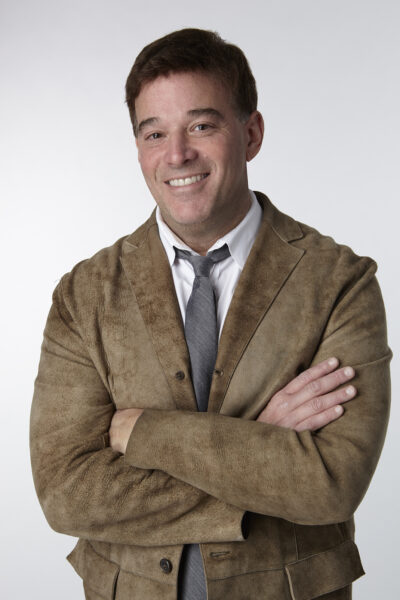Bands and Brand Endorsements
Jonathan Turitz is the chief marketing officer at D’Addario & Company, the #1 string manufacturer. An accomplished account, creative and strategic director with deep experience in traditional, digital and social media, Jon has managed the strategic and creative direction for many Fortune 100 and Fortune 500 companies. Back in 2012, when he was a partner at the brand firm, VSA, he helped explode the global profile of the larger D’Addario brand and the many other brands it oversees, including Evans Drumheads, Promark Drumsticks, Planet Waves and more.

I talked to Jon about D’Addario & Company’s long history and how it has evolved and grown. He also discussed product endorsements, what’s new and offered some tips for emerging artists looking to forge sponsorship partnerships with brands like D’Addario.
MC:
Thanks for taking time out to talk, Jon. You’re Chief Marketing Officer at D’Addario. What does that position entail? What are your main goals?
JT:
It’s interesting being a chief marketing officer for a company like D’Addario. It’s a different role than a typical CMO might play at, for example, a CPG company because I’m responsible for product management which is the whole life cycle of a product from as it’s conceived, as it’s being engineered and developed, and then marketed. I have to take into account artist relations, media, strategy and creative. D’Addario is also global, so my job can be pretty daunting at times, but I’m lucky enough to have some great people on my team.
In terms of my main goal, it’s really to make D’Addario the most respected and coveted brand in every category in the world.
MC:
You’re known for your bass and guitar strings, but you guys are definitely more than strings now. What is the background of the company?
JT:
The D’Addario family can trace their roots back to the 1600s in Salle, Italy where they were string makers. It’s pretty remarkable. The current CEO, Jim D’Addario’s grandfather came over to the U.S. in the early 20th Century and started making violin strings with a special machine he pioneered. Later, the strings moved from sheep gut to steel wire.
Jim’s dad started the business officially as it stands today. In the beginning, he focused on orchestral strings, but then expanded to guitar strings when the guitar became more popular in the 1950s and 1960s. The current incarnation of D’Addario as we know it really began in the 1970s with Jim and his brother John. At that point, they were exclusively a string company. Then, starting in the ‘90s, they began acquiring other music companies, like Planet Waves, Evans Drumheads, Promark Drumsticks, Rico Reeds and others.
I started working at D’Addario about five years ago, even though I’ve officially only been with the company for two years. I was on the agency side at VSA, managing the business. I worked with Jim and his daughter Amy. Together, we worked to completely reinvent the brand, which meant creating a brand book that defined the tone of voice, the purpose of the brand, the immutable truths behind the brand, as well as how we look, how we speak and how we behave as a brand. And that helps guide, ultimately, the evolution of our entire portfolio as well as a larger brand architecture. We wanted to make sure that all the other sub brands, like Evans and Promark got more associated with D’Addario, because at the time when I started working here, they weren’t linked, and D’Addario was getting none of the credit for the innovations being made by these other brands, and, conversely, these other brands weren’t getting any of the credit for the innovation of the master brand.
So, we now have a whole new D’Addario ecosystem. We’ve linked all these brands to D’Addario so people can begin to understand what a D’Addario product—not matter what the category—stands for.
MC:
I heard that D’Addario is one of the few string makers in this country that still manufactures almost exclusively in the U.S.
JT:
Yes. All our strings are made in Farmingdale on Long Island. The factory is attached to actual headquarters. Every string is made there and then shipped to wherever it needs to go, whether that be India, England or Des Moines, IA. The Evans drumhead factory is across the street, ProMark is in Houston. We also own our own sawmill in Tennessee. And our reeds are manufactured in California.
The “Made in the USA” part of our business fits into the much larger social responsibility story of the D’Addario company. We have a whole program called Playback, which is the largest string recycling program in the world. The family also believes that it’s important to keep jobs here in America, even if it costs the family money.
MC:
It seems like a lot of string makers have popped up during the past couple decades. Has the marketplace become more crowded?
JT:
Yeah, there are a lot of string makers. But, here is the good news: We’re number one. And while there are a lot of string makers, in truth, there are really only one or two main competitors in any market D’Addario is in.
For example, in electric strings, the main competitor is Ernie Ball. In acoustic strings, it’s Martin. And then Elixir fits into both categories. That’s it, in large part due to all the work we’ve done to build our brand.
We have all-new marketing communications and have created breakthrough products like, for instance, NYXL, that truly bring innovation to the category. This particular innovation is sorely needed and really solved the problem for a lot of guitarists in terms of trying to maintain tone and get a stronger string that doesn’t break as easily.
But, as I said, wherever you go, in whatever category, you will only find one or two major competitors in our business. To give some other examples, in woodwinds, you have Vandoren for reeds, Remo for drumheads and Vic Firth for drumsticks.
To answer your question, the marketplace gets a little crowded and gnarly when it comes to accessories. There are a whole bunch of people making accessories like capos and tuners. And now China has entered the marketplace making accessories at a much lower cost that are also of lower quality. Standing out from the crowd as a company for us is about teaching the market about the benefits of buying a higher quality product.
MC:
Musicians typically gravitate towards endorsements. Do all of your products have endorsed spokespeople and people who are endorsed by them?
JT:
Yes. We have artists for every brand.
MC:
I would imagine that each type of strings and certain accessories correspond to a very specific genre or a certain type of musician. Do brand endorsements drill down to genres like this?
JT:
We do have artist endorsements for every product category, but we don’t necessarily drill down that way in our advertising. We’re not necessarily linking an artist to a very specific thing, unless, for example, it’s a product directly linked to a highly specific category. For example, our new Nickel Bronze strings that are for the acoustic segment. In that case, we would certainly only use acoustic artists to promote the string.
MC:
What qualities do you look for when you’re looking for someone to endorse? What does D’Addario look for in this type of marketing relationship?
JT:
First and foremost, we’re not necessarily looking for artists who are “hot.” It’s great if they are, but the most important thing is that the artist has to be a phenomenal musician. Period.
Great musicianship is intrinsic to the D’Addario brand. After that, we’re looking for their trajectory for success. We want to know that this is an artist who is going somewhere. Obviously, as a brand, we want to link ourselves to people who are going to be successful.
The third thing we look for is innovation. Are they creating something new in their space? D’Addario has always been a pioneer – an innovative brand in terms of both engineering and marketing, so we want our endorsees to reflect that.
MC:
I think a lot of people have misconceptions about what endorsement is. Many think it’s about getting free stuff, putting a logo up on their website and occasionally sharing stuff on socials. But it’s about more than that. What makes a successful brand partnership? Do you have specific examples to share of people who have been great partners?
JT:
There are many people who have been great partners for D’Addario. One that comes to mind is Mark Portnoy, the drummer for Dream Theater. We created a whole video for him that was awesome. (Watch the video here https://youtu.be/nqy9CKUzyzI) We wanted him to introduce his signature stick, which was made with active grip technology. It’s a stick that is heat activated, so the sweatier you get, the tackier the stick becomes. It’s amazing technology. We designed it because we found that drummers in general actually experience a lot of fatigue, and this stick allows them to loosen their grip, play longer and be more comfortable.
In terms of the video, he is the whole premise. He let us film him in his home. He wakes up in the morning, he has drumsticks in his hand, he goes around his house and is drumming on everything. The video really illustrates the product benefit. It has had an outrageous number of views. What has really worked about that partnership is that we have helped to burnish his brand and he has done the same for us.
We’re creating unique content that we can push out to our channels that he also pushes out on his own. It’s a really fantastic symbiotic relationship. That symbiosis is the key to the future of all endorsee relationships for us.
It used to be the case that companies like ours just gave stuff away and didn’t ask for anything in return. We might ask for the occasional mention in a program or on someone’s website. That level of involvement unfortunately just isn’t going to cut it anymore, and, frankly, it’s not equitable. What is equitable is both of us working together to help build each other’s brands.
MC:
Portnoy has been around for a long time and is a real drummer’s drummer. Have you worked with any new and emerging artists who have done really well by you and by the D’Addario brand?
JT:
We started working with Anderson.Paak a while ago, before he became big. We’ve also worked with a lot of guitarists, people like Julian Lage, Sean Watkins and Blake Mills when they were starting out. We recognized their talent early on and how innovative they were as guitarists. We wanted them to be part of the D’Addario brand. As a result, we’ve worked really closely with a lot of these guys in helping build their brands. We pushed out everything from their album releases, to their tour dates, to videos where they discuss why they’re using our products and showing us how they’re using them. We have segments we call “Guitar Moves,” and “Guitar Power,” where they can really geek out on the technical aspects of their musicianship. It’s not heavily branded, but it speaks to the idea of innovative players using innovative products, which is what we want.
MC:
That type of marketing seems fairly basic, but at the same time, I’m sure not a lot of artists necessarily think about it. From a brand standpoint, it makes sense to align yourself with someone who is selling a lot of records, because they are showing up on stage and in videos with your products. I imagine other musicians would see this and take note.
JT:
Exactly. And we are going after the guitarist’s guitarist and the drummer’s drummer. We are looking for technical masters who are well-respected and good at what they do, not necessarily just superstars like Eric Clapton or Pete Townshend.
That concept is very reflective of our brand. That’s not to say we don’t want superstars; we have plenty of them playing on our strings. But the people who will really work hard for your brand are the guys who are out there working. They are the most reflective of our values, so we actively seek them out.
MC:
Your endorsements are about influencer marketing. And you were in that business before it was the buzzword it is now.
Aside from raw talent, what qualities are you looking for in developing artists when you’re looking for people to partner with on endorsements?
JT:
The thing to know is that at D’Addario, there is an artist relations department and there are A&R guys, not unlike at a label. They are going out and looking for the next big thing. So, if you are an artist, you have to know how to draw attention to yourself.
One thing you can do is align yourself with one of our existing artists and have them contact us on your behalf. That would be an easy, logical thing to do. And if you do write to someone in the A&R department, make sure you have a YouTube page. Believe me, we’re a small enough company where people read your emails. We’ll certainly take the time to look, so you have to have something to look at. If we like what we see and hear, we will make an effort to go out and see you. We have A&R guys in L.A., New York and Nashville, so it’s highly likely we can find you.
If you are an artist in Des Moines or somewhere off the beaten path and don’t play gigs in larger cities, it might be a little more difficult. If that’s you, it’s just a question of having tremendous talent and someone being able to see that on YouTube or Vimeo.
To learn more about D’Addario, its products and its work with artists, visit the company on Facebook https://www.facebook.com/daddario/ and Instagram https://www.instagram.com/daddarioandco/.









